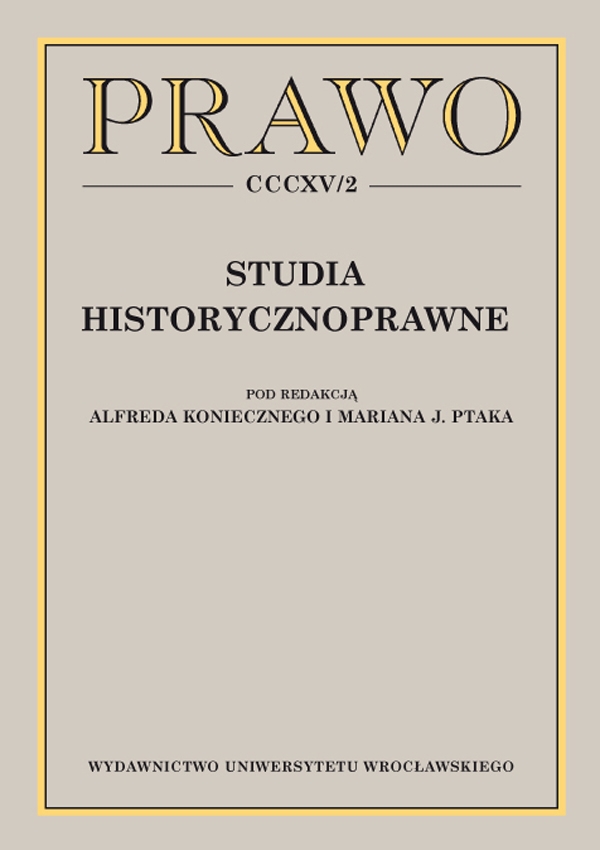

Artykuły

The conditional suspension of the execution of a penalty — the genesis of the institution and its description in the Polish Penal Code of 1932
This elaboration deals with the regulation of the conditional suspension of the execution of a penalty in the Polish Penal Code of 1932. The genesis of the institution, legal provisions in force in Poland before the enactment of the Penal Code of 1932 and the rules contained in the draft prepared by the Section of the Criminal Law of the Codification Committee of the Polish Republic, based on a report prepared by Juliusz Makarewicz, were presented in the article.
It has been shown that the institution of conditional suspension of the execution of a penalty in the Polish Penal Code of 1932 was formed on the basis of in-depth considerations, taking into account the achievements of European doctrine of law and legislation. During its regulation not only a popular on the European continent Franco-Belgian system, but also the indigenous experience of the validity of particular laws in the areas previously held by the former partitioning powers was used.
The rules of conditional suspension of the execution of a penalty developed by Polish lawyers, constituted an important element in accordance with the demands of sociological individualization school of criminal responsibility.
Bedingte Aussetzung der Strafvollstreckung – die Genese der Institution und ihre Erfassung im polnischen Strafgesetzbuch von 1932
Der Beitrag wurde der Normierung der Aussetzung der Strafvollstreckung im polnischen Strafgesetzbuch von 1932 gewidmet. Geschildert wurden die Genese der Institution, die Rechtsvorschriften, die in Polen vor der Verabschiedung des Strafgesetzbuches von 1932 galten und die Grundsätze, die in dem Entwurf der Sektion Recht der Kodifikationskommission der Republik Polen enthalten waren. Ihre Basis stellte ein Referat von Juliusz Makarewicz dar.
Es wurde nachgewiesen, dass die besprochene Institution aufgrund von vertieften, das Werk der europäischen Rechtslehre und Gesetzgebung berücksichtigenden Überlegungen herausgearbeitet wurde. Bei den Normierungsarbeiten hat man sich jedoch nicht nur des in Europa populären französisch-belgischen Systems bedient, sondern auch der einheimischen Erfahrungen aus der Zeit, als die partikulären Rechtsvorschriften in den ehemaligen Teilungsgebieten galten.
Die durch die polnischen Kodifikatoren ausgearbeiteten Grundsätze der bedingten Aussetzung der Strafvollstreckung stellten ein wichtiges Element der Individualisierung der strafrechtlichen Verantwortung dar, die mit den Postulaten der soziologischen Schule im Einklang stand.